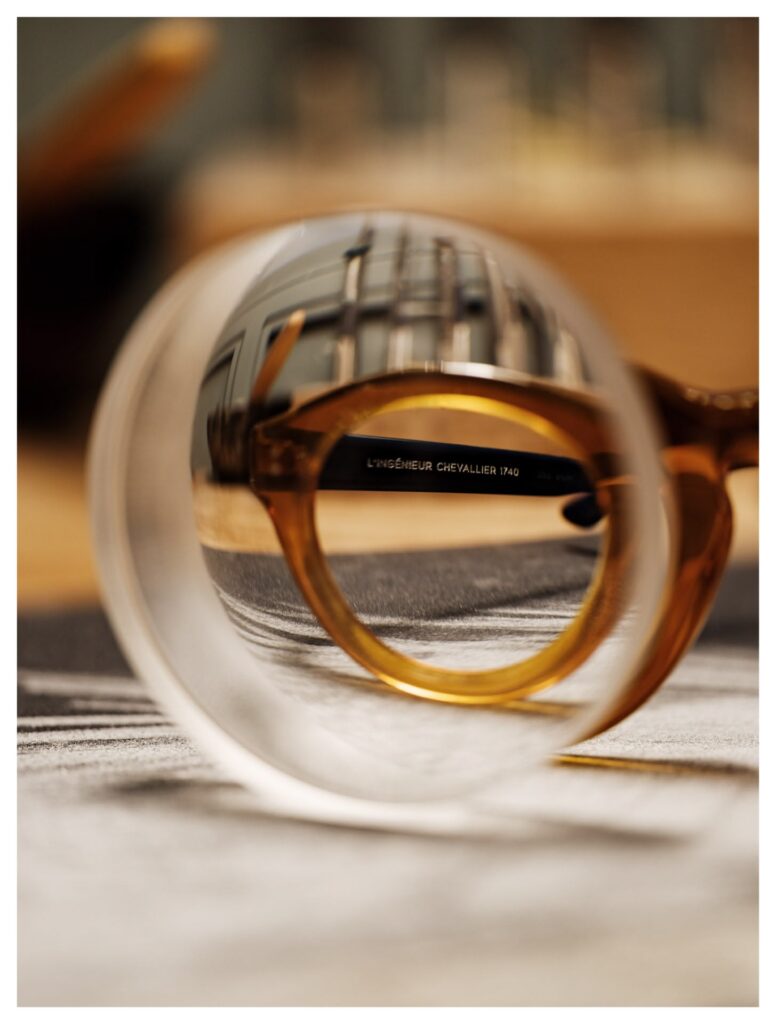
How to maintain your visual health at any age?
Our eyes are one of our most precious resources. Yet, far too often, we neglect them. Between prolonged exposure to screens, poor eating habits, and a lack of regular checkups, our visual health is constantly put to the test. This guide explains how to preserve your eyesight at every stage of life. Whether you’re an active adult, a senior, or a parent concerned about the well-being of your children, you’ll find practical advice and tips to maintain a clear and healthy vision over the long term.
Why is visual health so important?
Our eyes play a crucial role in everything we do every day. But vision problems, even minor ones, can have a significant impact on our quality of life:
- Physical consequences: uncorrected visual impairments such as nearsightedness or farsightedness can cause headaches, eye strain, and even neck pain due to poor posture.
- Safety effects: poor vision can lead to an increased risk of accidents, particularly for the elderly or those who drive frequently.
- Emotional impact: not seeing properly can also affect our morale, leading to frustration, increased dependence on others, and a loss of self-confidence.
Taking care of your eyes is therefore not just a matter of comfort, but a true health priority.
1. See an ophthalmologist regularly
Early detection is essential to prevent or correct vision problems. Here are some guidelines to follow regarding the frequency of exams:
- Children should have their first comprehensive eye exam at six months of age, then at three years of age, and then annually from the time they start school.
- Between the ages of 20 and 39: have your eyes checked at least once every 2 to 3 years, even if you don’t notice any problems.
- Between the ages of 40 and 64: have a checkup every 1 to 2 years. At this age, you may begin to notice changes such as farsightedness (difficulty reading up close).
- Ages 65 and over: have an annual exam. Seniors are more at risk for conditions such as cataracts, glaucoma, and age-related macular degeneration (AMD).

2. Eat a balanced diet
What you eat has a direct impact on the health of your eyes.
Here are some suggestions for beneficial foods:
- Leafy green vegetables: spinach, kale, and broccoli are rich in lutein and zeaxanthin, two antioxidants that accumulate in the macula of the retina to filter some blue light and ultraviolet rays and eliminate free radicals.
- Fatty fish: salmon, tuna, mackerel, and sardines contain omega-3 fatty acids, which are beneficial for preventing dry eye.
- Citrus fruits and berries: oranges, lemons, strawberries, kiwi, blueberries, etc. Rich in vitamin C, they help protect eye tissue.
- Nuts and seeds: almonds, walnuts, and chia seeds provide vitamin E and zinc, necessary for good retinal health.
- Eggs are also an excellent source of zinc.
3. Protect your eyes from the sun
Prolonged exposure to UV rays can damage your eyes and increase the risk of cataracts and AMD. Wear sunglasses with 100% UV protection when outdoors, even on cloudy days. If you wear glasses or contact lenses, don’t hesitate to contact us to discuss your UV protection options.
4. Limit screen time
Prolonged use of computers, smartphones, or tablets can cause digital eye strain. Apply the 20-20-20 rule:
- Every 20 minutes, take a 20-second break by looking at an object 20 feet (about 6 meters) away to relax your eye muscles.
- Adjust the brightness of your screens to match your surroundings.
- Place screens about an arm’s length (50 to 60 cm) from your face and ensure they are slightly below eye level.

6. Adopt a healthy lifestyle
- Avoid smoking: did you know that smoking isn’t just bad for your lungs? It’s also a major risk factor for eye diseases, including macular degeneration and cataracts, as well as optic nerve damage. Quitting smoking can significantly reduce these risks and improve your long-term eye health.
- Engage in physical activity: regular exercise stimulates blood circulation, promotes the delivery of oxygen and nutrients to the eyes, and reduces the risk of circulatory diseases that can affect the retina. For example, you can do 30 minutes of moderate exercise such as brisk walking, swimming, or cycling several times a week.
- Get enough sleep: sleep is essential for overall health, and your eyes are no exception. During sleep, your eyes regenerate by removing irritants such as dust or allergens. Aim for at least 7 to 8 hours of sleep each night to keep your eyes bright and fresh.
- Stay hydrated: proper hydration is essential for your eyes to produce tears, which keep them moist and free of irritants. Dehydration can lead to dry, itchy, or red eyes. Drink enough water throughout the day to maintain your body’s overall fluid balance.
7. Keep your glasses up to date
Make sure your glasses or contact lenses are up to date. Poorly fitting glasses can cause headaches and worsen vision problems.
8. Proper Lighting
Regardless of your age, make sure you have adequate lighting when reading or working to avoid eye strain. Parents, pay particular attention to children’s lighting when doing homework.
9. Practice eye exercises
When you wake up in the morning, don’t go straight to your screens. Wait at least an hour and start your day by looking out the window as far as possible to diverge your eyes and maintain their health, as we tend to use our near vision much more.
In addition, simple exercises, such as looking from left to right and then up and down, several times throughout the day can help maintain the flexibility and strength of your eye muscles.

10. Wear safety goggles
If you work in an environment where your eyes are exposed to hazards (dust, metal shards, chemicals), always wear safety goggles to prevent eye injuries.
11. Don’t overuse contact lenses
To preserve your tear capacity and avoid drying out your eyes, wear your lenses a maximum of 5 days out of 7, remove them as soon as you get home, and above all, do not sleep with them on. Once your eyes become too dry for contact lenses, you will never be able to wear them again.
12. What are the signs of vision health problems?
- Parents, be on the lookout for signs of vision problems in children, such as squinting, frequent rubbing, or difficulty following moving objects. Consult an eye care professional if you notice any of these signs.
- For adults, while maintaining good habits can significantly protect your vision, it is important not to ignore the signs of potential eye problems.
You should consult your doctor immediately if you experience any of the following:
- Blurred or double vision
- Persistent eye pain
- Long-lasting redness or irritation
- Sensitivity to light
- Spots or flashes in your field of vision
Keeping your eyes healthy is a lifelong commitment.
Taking care of your eyes isn’t complicated, but like anything else, it requires regularity and attention. With a combination of healthy habits and regular checkups, you can reduce risks and maintain optimal vision throughout your lifetime.
To learn more or get personalized recommendations, schedule an appointment with one of our specialists today and give your eyes the care they deserve.